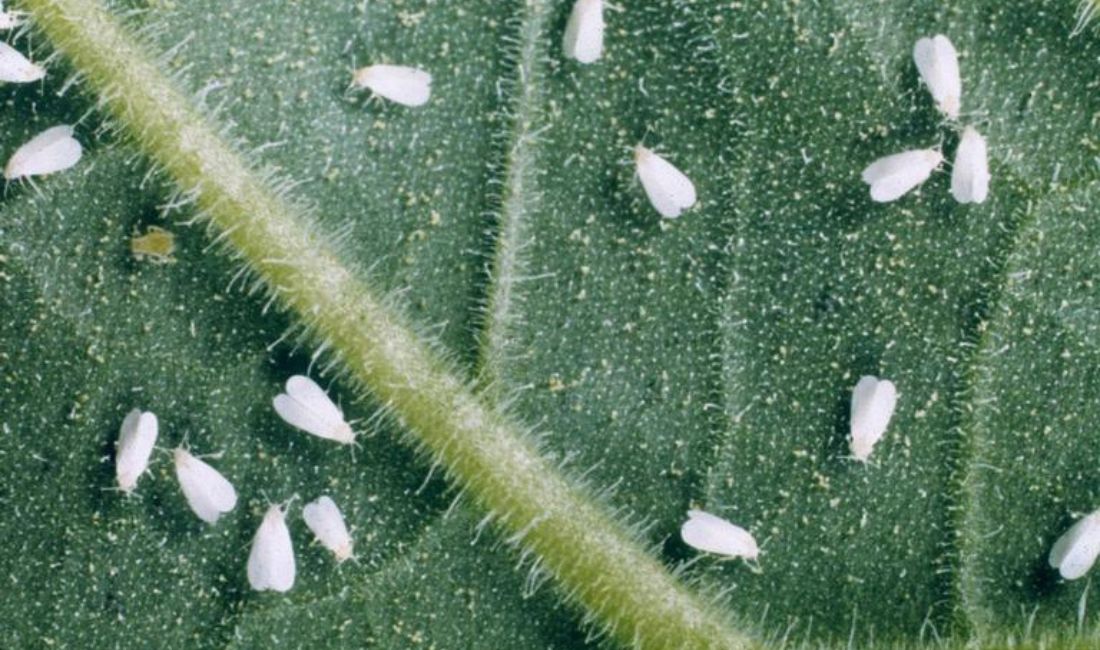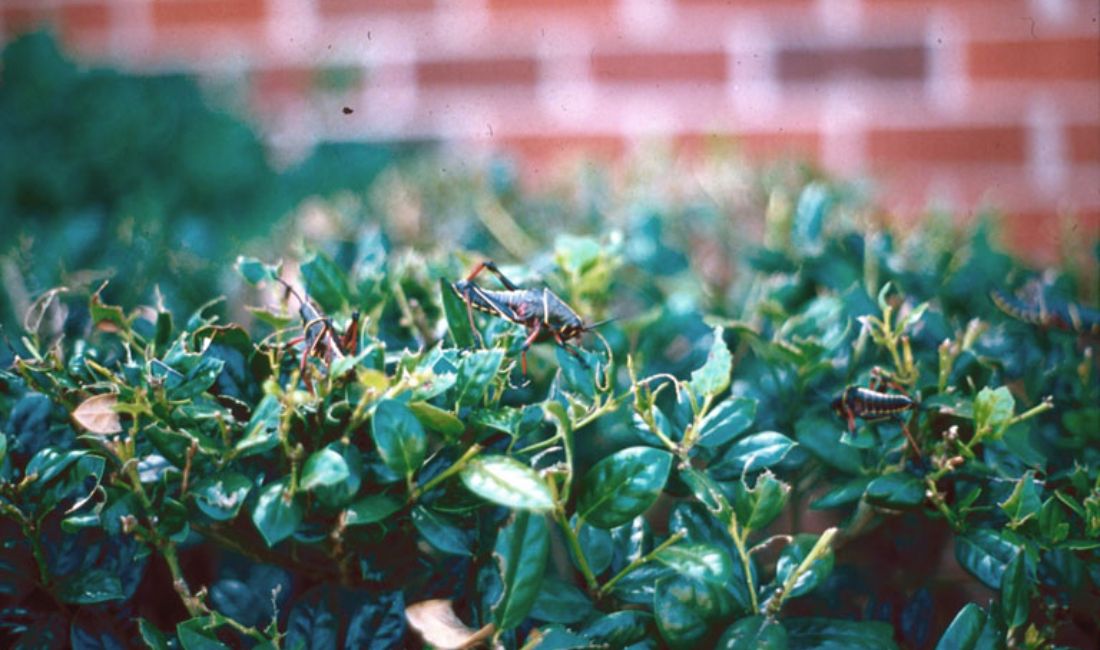Whether you’ve poured your heart into nurturing delicate seedlings all spring or recently brought home and planted some pre-grown blooms from the Coastal Gardens Nursery on Parker Avenue, your Palm Beach garden is a source of pride. But with that beautiful garden come some uninvited guests – sometimes prickly, often slimy, but unfortunately all too common garden pests.
These unwelcome visitors can quickly transform your once-pristine garden plants into a gruesome battleground. This article will equip you with everything you need to identify, outsmart, and eliminate these pesky invaders so your garden thrives all year long.
Key Takeaways
- Palm Beach, Florida’s climate attracts many destructive garden pests, including sap-suckers and leaf chewers that can quickly destroy your garden plants.
- Integrated pest management strategies, such as selecting native plants, watering correctly, maintaining your garden, and helping attract beneficial insects to your yard can help keep destructive insects from taking over your garden.
- If the problem persists, with widespread damage or rapidly growing pest populations despite your best efforts, contact your local horticulturist at Coastal Gardens for effective solutions.
Common Garden Pests You’ll Likely Find in Palm Beach, FL
Palm Beach’s warm climate and lush greenery create a paradise for humans and plants alike. Unfortunately, this also attracts a variety of pests to our region. Plant pests come in all shapes and sizes, and understanding their feeding habits is the first step to keeping them at bay in your garden.
While there are many types of pests found on Palm Beach island, those described below are the most common garden pests we see as we visit client properties throughout the area.

With more than 75 species of whiteflies in Florida, they are one of the most serious and damaging sap-sucking insect pests in Palm Beach.
Sucking Insects
Sucking insects drain the lifeblood from your plants. They pierce plant tissues and siphon out vital fluids, leaving your plants weakened and struggling. Common culprits in this group include:
Aphids
These tiny, soft-bodied insects come in various colors, like green, yellow, or red. They’re pear-shaped, with long legs and antennae that stick out from their bodies. Aphids are one of many sap-suckers that congregate on the underside of leaves, causing stunted growth and yellowing foliage.
Whiteflies
There are more than 75 whitefly species in Florida and many more worldwide. Ficus, silverleaf, and rugose spiraling whiteflies are the biggest concern in Palm Beach, Florida. While feeding on plants, these pests produce a sugary substance called honeydew, which causes the growth of sooty mold. Unlike aphids, whiteflies are tiny, winged insects that resemble miniature white moths.
Scales
There are two types of scales – soft scale insects and armored scale insects. These garden pests are primarily attracted to palms, and cling to stems and leaves, sucking sap and leaving behind a waxy shell. Scales can stunt the plant’s growth, making leaves appear dull and unhealthy. Look for tiny bumps or scales on the stems and underside of leaves. Armored scales have a hard, shell-like covering, while soft scales are more sac-like and may appear fuzzy or waxy.
Thrips
Thrips are tiny, slender insects that are hard to see with the naked eye. But don’t underestimate the damage they can cause! After the thrips puncture the plant and suck out all the sap, they leave silvery patches on the leaves. Their droppings can also turn into black blemishes on your plants.
Mealybugs
These fuzzy white insects resemble cotton-like patches on your plants. Like scales, they leave behind sticky honeydew that produces black, sooty mold fungi that restrict sunlight and hinder plant growth. Mealybugs are particularly problematic because they have a wide range of host plants, meaning they can infest a variety of flowers, vegetables, and ornamentals in your garden.

The brightly-colored Eastern lubber grasshopper has a voracious appetite and can quickly munch its way through large swaths of your Palm Beach landscape.
Chewing Insects
These chomping machines munch their way through leaves, stems, and even roots. Some of the most common chewing insects to watch out for in Palm Beach, Florida, include caterpillars, cutworms, grasshoppers, snails, and slugs.
Caterpillars
Often described as cute and fuzzy bugs, caterpillars might seem friendly to have around – especially if you’re hoping they will soon turn into beautiful butterflies. However, not all caterpillars are harmless, especially the tussock moth caterpillar whose hair can irritate the skin and cause an itchy, burning sensation. Their relentless munching can ravage entire gardens.
Cutworms
Close relatives of caterpillars, these bugs are particularly sneaky. Unlike their above-ground counterparts, cutworms feast on the base of stems, often severing them completely. This can cause wilting, stunted growth, or even plant death. One telltale sign your garden is suffering from cutworms is finding small holes near the base of your plants accompanied by stems lying on the ground.
Grasshoppers
Grasshoppers can devour a wide variety of shrubs, herbs, broadleaf weeds, and even grass. One particularly destructive grasshopper species you will likely find terrorizing your Palm Beach garden is the eastern lubber grasshopper. These large, brightly colored insects have been known to eat their way through entire gardens, affecting at least 100 species of plants.
Snails & Slugs
When the weather is wet, these slimy visitors seem to appear out of nowhere, bringing one heck of an appetite with them. Snails and slugs have a rasping tongue called a radula, which they use to scrape away at leaves, flowers, and fruits.
The damage they cause can range from small holes to completely devoured plant parts, making tender seedlings and young vegetables the most vulnerable to destruction. Snails and slugs are easy to spot hiding under rocks, mulch, or in shady areas of your garden, often leaving a trail of slime behind them.
How to Keep Pests Out of Your Palm Beach Garden with Integrated Pest Management Strategies
Integrated pest management, or IPM, is a comprehensive strategy that focuses on preventing pest problems in the first place and using natural methods to control pests when necessary. So, what can you do?
Choose the Right Plants
The foundation of a healthy garden that is free from unwanted pests starts with selecting the best plants for Palm Beach landscapes. Plants that can handle the heat, humidity, salt, and storms that South Florida is known for are less likely to become stressed and susceptible to pest infestations.
When plants become stressed, whether that’s due to improper care or unsuitable growing conditions, their immune systems weaken. This weakened state makes them more vulnerable to attacks from insects and diseases.
Water Correctly
Proper watering practices also play a crucial role in pest prevention. Overwatering can create a breeding ground for fungi and attract pests seeking moisture. Instead, deep water your plants less frequently to encourage healthy root growth and deter pests that thrive in soggy conditions, like aphids and slugs.
Maintain Your Garden
Just like a clean home deters unwanted pests, a thriving garden needs consistent maintenance. This not only helps prevent pest problems but promotes healthy plant growth overall. Your regular garden maintenance tasks should include:
- Remove debris like fallen leaves and dead plant material to prevent the perfect breeding ground for fungal spores.
- Harvest vegetables or fruit before they begin to rot, which attracts pests like fungus gnats and fruit flies. Plus, rotten produce can spread diseases to other plants in your garden.
- Clean any gardening tools after use to prevent diseases from spreading from plant to plant.
- Check that drainage holes are clear on all pots and planters. This prevents water from becoming stagnant around the roots. When roots sit in waterlogged soil, they can rot, attracting even more moisture-loving insects to your garden, including disease-carrying mosquitoes.
Attract the Good Guys
While some insects are considered pests, others can be helpful allies in your fight for a healthy garden. Ladybugs, lacewings, and praying mantises are natural predators that devour aphids, caterpillars, and other harmful insects.
To attract these beneficial insects to your garden, choose plants that are full of flowers and pollen. Pesticides and insecticides should only be used as a last resort, as they tend to kill all insects, including the beneficial ones.

How Do I Get Rid of Bugs in My Garden?
Even with the best preventive measures in place, sometimes unwanted pests can overwhelm your garden. If you’re experiencing widespread damage or rapidly growing pest populations, you can try one of the following natural DIY solutions:
- Target Specific Pests: Once you’ve identified the main culprits, you can research natural remedies, such as cinnamon, coffee grounds, castile soap, neem oil, or even shallow dishes of beer, each designed to eliminate that particular insect. Follow the instructions carefully and prioritize eco-friendly options, like organic insecticides, whenever possible.
- Sprinkle Diatomaceous Earth: A naturally occurring powder, like diatomaceous earth, is effective against various crawling insects. This product is made from fossilized algae and disrupts the insects’ exoskeletons, causing them to dehydrate and die. While wearing a mask to avoid inhaling the dust, apply diatomaceous earth lightly around the base of plants or sprinkle it directly on pests.
- Spray with Insecticidal Soap: Insecticidal soap, made with fatty acids, can be an effective way to control soft-bodied insects like aphids, mealybugs, and whiteflies. Mix a few tablespoons of insecticidal soap with a gallon of water and spray directly on the insects. For the best results, reapply after rain or every few days.
- Handpick Larger Bugs: For larger pests like grasshoppers, slugs, and snails, you can handpick them and drop them into soapy water to die. Use caution by wearing gloves to avoid bites and skin irritation when dealing with certain types of bugs.
Conquer Stubborn Garden Pests – Call Coastal Gardens Today!
A healthy garden brings delicious homegrown produce, vibrant blooms, and a beautiful place in your own backyard to connect with nature. But keeping it pest-free requires a proactive approach.
If you’ve tried multiple DIY solutions and have yet to see much improvement, or if the problem feels too big to handle on your own, don’t feel defeated! Call Coastal Gardens instead.
Our team of passionate horticulturists have the knowledge, experience, and eco-friendly solutions to banish unwanted visitors and restore peace to your garden.
Don’t let pests steal the enjoyment of your Palm Beach property. Call us at 561-308-7604 or quickly fill out our form online to schedule an appointment today.
CALL US TODAY At 561-308-7604
Estate landscape Services
For Fine Properties in Palm Beach
With Coastal Gardens, you can rest easy knowing that your property is taken care of by a dedicated team of estate landscape professionals who truly care about creating and maintaining a dazzling outdoor space you can be proud of.
